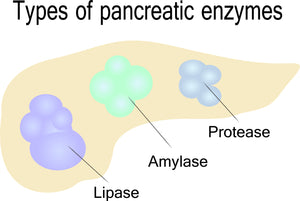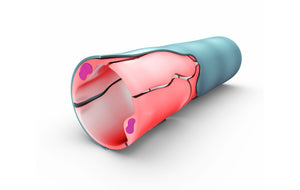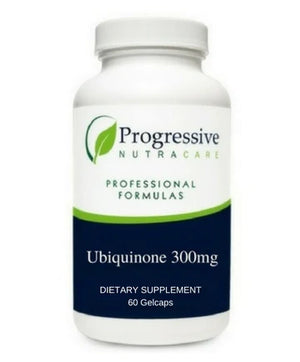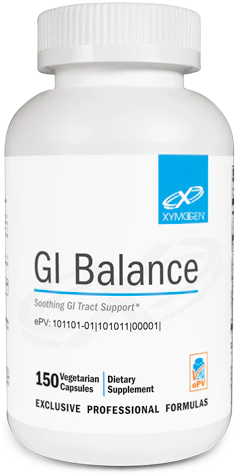Flip the Switch and Turn On Your Hormone Powerhouse

You may be familiar with the thyroid gland- a small butterfly shaped gland situated on the front of the neck.
You may know people with thyroid disorders.
But, what does your thyroid do and why does it need to be functioning optimally?
Why does the thyroid matter?
It gives you energy! It is more-or-less responsible for your metabolism. It is in charge of over 80 functions in the body..isn't that amazing??
What happens if the thyroid is out-of-balance?
Most commonly, people will experience hypothyroidism. Other conditions are hyperthyroidism (too much thyroid activity), Grave’s Disease, and Hashimoto’s. If left untreated, a number of complications can result, including infertility and an increased risk of cancer. Properly addressing imbalanced thyroids can lead to life-changing improvements, as it affects so many bodily functions!
What symptoms are associated with thyroid disorders?
Those with Hypothyroidism may experience symptoms like:
- Occasional Anxiety
- Dry skin & hair
- Hair loss
- Weight gain
- Brain Fog (slower thinking, memory difficulty)
- Fatigue
- Heavier and/or more frequent menstrual periods
- Goiter (swelling in the front of the neck, caused by enlargement of the thyroid)
- Slightly higher blood pressure
What should I do about it?
Test.
Be sure to get a full thyroid panel, one that includes TSH, free T3, free T4, total T3, reverse T3, and antibodies. Mainstream doctors usually only test TSH and sometimes free T3/T4 and unfortunately that doesn't tell us much on the health state of your hormones.
Rebuild.
Further, we provide natural solutions that can, in many cases, rebalance thyroid hormone levels back to normal, stable levels for prolonged periods of time without ongoing medication. Lets take a look at some of our favorite natural solutions:
Based on the proper use of herbs and spices to aid the body in healing, many of the herbs support the body to help clear out toxins, integrate more iodine into the diet, and support the overall adrenal system.
Seaweeds, kelps, and other sea vegetables were used by the herbal medicine community for millennia, highly traded to inner areas of the continent. The practitioners knew the inherent value of these foods, and today we suspect that iodine is the reason why.
In addition to the iodine, sea vegetables contain 20-50% of their weight as minerals, including magnesium, potassium, sodium, calcium, zinc, chloride, sulfur, phosphorous, copper, vanadium, cobalt, manganese, selenium, iron, and fluorine. As the body becomes deficient in these minerals, it begins to manifest disease. Eating kelp helps provide some of the missing nutrients to the body.
Rosmarinic acid, particularly from rosemary, has been showing promise in several studies indicating its role in thyroid stimulating hormone uptake. For immune-related hypothyroid issues, it calms excess T cell activity and pro inflammatory cytokine release.
Ashwagandha helps naturally stimulate thyroid activity and helps prevent hepatic (liver) damage because of low thyroid hormones. Additionally, ashwagandha helps reduce cortisol in the body, reducing stress that can play a part in the overstimulation of the thyroid.
The guggul plant, Commiphora mukul, is gaining popularity, especially for help people restore immunity and natural function. According to Dr. Richard B. Kreider, gugguisterones may increase the function of the thyroid and stimulate the conversion of the T4 into the more active T3 form (Exercise & Sport Nutrition: Principles, Promises, Science, & Recommendations; Richard B. Kreider ,et al.; 2009 ).
Using the right types of supplements supports the whole body, and in particular the thyroid. Selenium is present in the endocrine organs in higher concentrations than in other organs of the body. Being deficient places stress on the thyroid and its ability to utilize iodine. It works particularly well with vitamin D in helping the body prevent oxidative stress.
Many women are deficient in Vitamin A, D, and E, which can show up in repressed thyroid function. In particular, the carotenoids (Vitamin A) are partially responsible for helping the body sense and utilize the thyroid hormones. Both vitamins D and E are powerful antioxidants that help preserve the body’s natural function and help the other vitamins function normally.
As you can see there are many nutrients you can take to support your thyroid. Implementing supplemental support, a healthy diet, and managing stress with exercise, sleep, and self care, can help your thyroid work at its highest potential.
- Madison Blackmon







Comments 1
Patricia Ross
I’m a patient there I have a thyroid condition and I would like to try some supplements that would help me with my medication Armour Thyroid 60mg